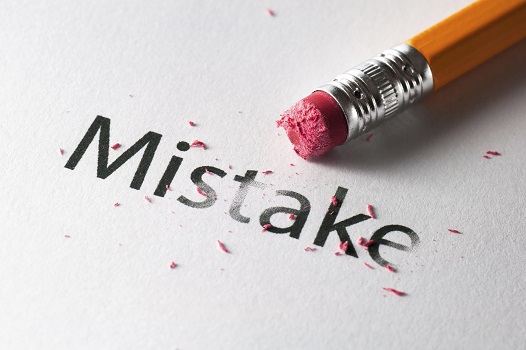Celebrities are an attractive target market, but they can be tough to land as clients. The benefits of selling to celebrities, though, are worth the challenge for many companies. After all, having a talented actor or musician earns you:
- An more impressive portfolio – Doing a project for a local upcoming rapper is a good portfolio builder. Doing a project for Kendrick Lamar is an even better portfolio builder.
- A chance to work with more celebrities – If you establish a good relationship with a manager, agent, or record label, it can turn into a chance to work for all of their clients, not just the one you originally pitched.
- Heightened name-dropping abilities – i.e. “My company is working on Kendrick Lamar’s new website right now” when pitching other clients.
There’s obvious upsides to selling your services to celebrities, but most of people don’t have a clue where to start when it comes to nailing down a big name client.
I’m here to help provide a solution to that. In the past, I have worked on digital marketing campaigns for clients like Asher Roth, Kid Cudi, Fabolous, and others. It’s easier than it sounds.
How I Sold My Services To Celebrities
I started working with celebrities by building websites and managing online marketing campaigns for artists. There wasn’t anything special about me except that I had a few connections in the music industry and a passion to help artists succeed with my digital marketing skills. Social media and viral marketing were just becoming normal channels of publicity, and I saw ways artists could use my services.
In the beginning, if the artist didn’t have the budget for digital marketing, I worked for free. Pretty soon, though, I had a healthy portfolio and could name-drop a few famous clients. Record labels started utilizing my services for their artists, and I was running a business with celebrities as my target market.
There wasn’t some sort of magic trick to my methods, though. Anyone can sell their services to celebrities – I just put myself out there and pitched them.
A Guide To Selling To Celebrities
We tend to idolize celebrities, and while their songs or performances may have changed our lives, this is a problem if we want them to become our clients. For purposes of business, you have to remember that this is business, and the best way to land a famous client is the best way to land any client – show the right people that buying your service will bring them greater success.
This is the strategy I used to do that. It took me from no clients to being able to land a few notable clients. Here are the steps that I took:
1. I targeted up-and-coming talent.
Targeting up-and-comers helps you in three ways: (1) You have a better chance of making the sale, (2) you’ll be providing a high value to the client, and (3) as their reputation grows, so does yours.
If you’re a fledgling company with no celebrity clients to boast yet, targeting a few newbies means you can reach the decision makers more easily. Before you contact the decision makers, though, it’s important to research your prospect. Knowing the background on artists prior to contacting their management about possibly working with them gave me more talking points when crafting my email and pitching them over the phone.
How to find rising stars
My greatest success in finding upstarts in the music industry came from closely monitoring music charts, blogs, social media, and magazines to see who was on the rise. I looked for artists that I liked, and this is important – If you’re going to work with a celebrity, it helps if you actually like them.
Whether or not I liked their music wasn’t the deciding factor for me when I researched potential clients, though. I looked at the metrics to find artists whose fan bases were steadily growing. If their following was on the rise, their careers were on the rise, and if I worked with them, my business would grow as their name got more famous.
If you’re looking to work with talented newcomers to the music industry, these resources can help you get started:
- Next Big Sound is a good tool for monitoring the following and growth of artists, and it provides you with data on artists social media accounts.
- The Music Blogs List on the Booking Agent and Management Database sorts music blogs by genre and is the place to find websites you can monitor for new artists.
2. I contacted the right people.
If you want to sell your design services to Chief Keef, don’t try to contact Chief Keefs’ directly. He doesn’t make the decisions about things like marketing because he has a manager, an agent, and a record label to figure those things out for him. Not that he couldn’t, celebrities are just pressed for time. It’s best to find someone who represents the celebrity, like their agent or manager, and make your pitch to them. A good resource for finding these people is our celebrity contact database.
You will typically want to contact the manager to pitch your services. I sent out emails to the managers of many artists and also utilized connections that I had at record labels to win some of my marketing jobs. When initially reaching out to celebrity representatives, email before you even think about calling.
I wouldn’t contact an artist representative on the phone until after I got a favorable response through email, and at that point I would schedule a time to speak with them. These are busy people, and trying to ambush them with a sales pitch over the phone could kill your chances of ever working with their client.
Here’s an example of one of the email pitches I would send:
Hi,
I work for [my company] based out of Dallas, TX, and we work with labels and management companies in marketing and developing their artists using the internet. We work with our clients in creating digital campaigns with quantifiable results that lead to increased awareness among their target audience. In the past we have worked with artists such as Fabolous, Asher Roth, Kid Cudi, Eminem, just to name a few.
I’ve been researching your target demographic, and have some ideas I think could help build the already successful career of [prospective client]. I am reaching out to you to see if you would be open to discussing our ideas for marketing [prospective client] on the internet.
Are you available for a quick 15 minute phone call this week?
Thanks, I look forward to hearing from you.
Billy Bones
My Company
Marketing Director
ph: xxx-xxx-xxxx
fax: xxx-xxx-xxxx
I was hesitant to post this template that I used because it’s longer than any pitch I’d send today, and I haven’t used it since 2009. However, I wanted to give you a sense of the process. This pitch wasn’t perfect in 2009 either, but it worked. The point is that you reach out, show them how your service can benefit them, and then get them on the phone.
In your email pitch, it’s important you set up a time to talk. Celebrity representatives are normally busy people with calendars full of events and tasks, so carving out a piece of their time is essential if you don’t want your email to get buried and forgotten.
If a manager responded, they typically gave me a day they were free to talk and their phone number. Today, I would schedule the phone call in a software like Google Calendar and send the prospect an invitation to the “event”. That way the phone call appears on the calendar and they get a reminder.
When you do get them on the phone, you want to have a specific plan of what you want to cover in the call. Here are some tips to help you develop your talking points:
- Don’t waste time. I can’t stress enough the point that these are busy people, and a 15-minute phone call can seem like an eternity to them, especially if you’re not quick to your point.
- Emphasize the benefits. Be very specific about what you are going to do for them. I would tell managers what I could do for their artists over the phone, but I also created a custom proposal that went into further detail on all the points I mentioned during the call. After the call ended, I followed up immediately by sending them the detailed plan.
- Show off your research. It’s important that you do good research before you hop on the call with the representative. By referencing the things you’ve learned in your research, you not only appear more credible in your field, but you also look like a fan who cares about helping the artist succeed.
Know how much to charge.
Especially if you’re a startup, you might not be sure how much you should charge customers – if you’re trying to work with celebrities, you’re likely even more confused.
Remember what I told you about contacting agents, managers and other representatives: This is just business. It might be the music business or show business, but it’s still just business. That means the same rules apply.
A few more things to remember when finding your best price point:
- Charging too little is telling potential clients you aren’t the best at what you do. You become the bargain web developer or budget stylist. While you can’t jump from being a no-name to a high-end service provider immediately, it’s almost impossible to try to raise prices after already being labeled “cheap”.
- Focus on quality clients rather than quantity. One high-quality client who’s willing – and able – to pay you what you deserve is better than 3 clients looking for a bargain.
- When in doubt, look to industry standards. You might be really new and unable to determine your rate based on costs and profit desired because you’re just still so inexperienced. That’s ok – look at what everyone else is charging, and work from there.
Don’t be afraid to work for free.
It’s ok to work for free if you’re working to build your credibility. Just make sure that any job you’re doing for free actually will positively impact your company’s future. If you’re doing a project for a celebrity client as a portfolio builder, remember these tips:
- Get testimonials. It’s always good practice to ask a client for a reference or a testimonial once you complete a job, but when working pro bono, you should make this a requirement.
- Don’t make this a regular thing. One free job for a client isn’t a bad deal if you’re building credibility. If a client continues to ask you to work for free, though, politely decline – it’s easy to get stuck working for someone who never intends to become a paying client.
- Build your portfolio, gain connections, use free work as a “trial period” or charge them. If you’re not gaining credibility, a network, or paving the way to normal paid work, then either pass on the project or charge the client. The only times you should work for free is when you’re growing your business.
Obviously, this isn’t the way you want to do business forever, but it’s usually easier to jump from working for free to a high fee than to raise a low price. Keep things professional, though. You’re not just doing this project for them; you’re going to use this job as an example of what you can do for future clients.
3. I closed the sale.
It’s important to get a deposit when you confirm the sale. Not only does it mean the client is invested in the project, but it also ensures you don’t work for nothing. To this day, I have clients who never paid their full bill. When you’re negotiating, get at least 50% of your fee up front.
Be extremely clear about what services you will and won’t be performing for the celebrity client, and send all details by email. If you’ve clarified up front exactly what you’re doing and exactly what you’re charging for that, clients don’t have room to ask for more without paying you more.
You might develop a payment schedule where they pay you as you complete different milestones, but it’s in your best interest to take money for each task up front. The last thing you want is to be chasing people to get your money.



